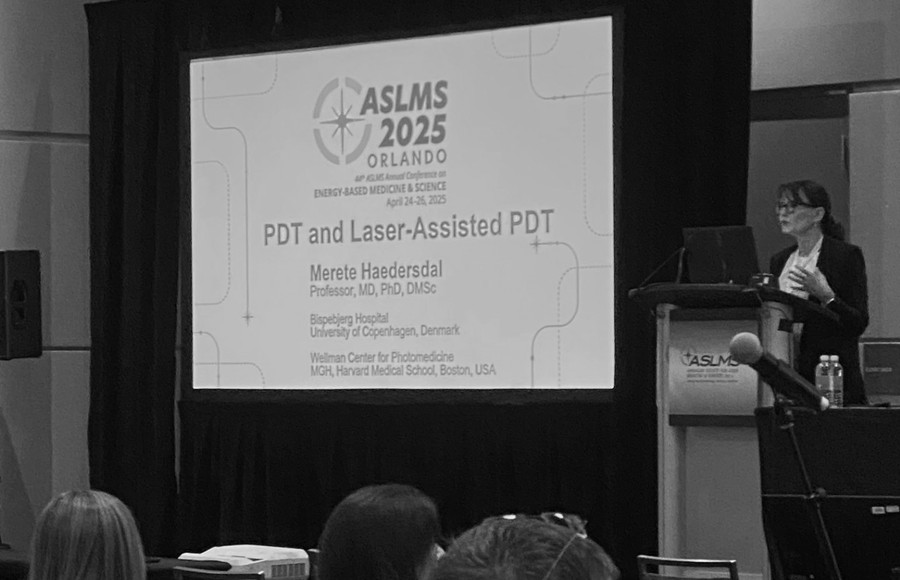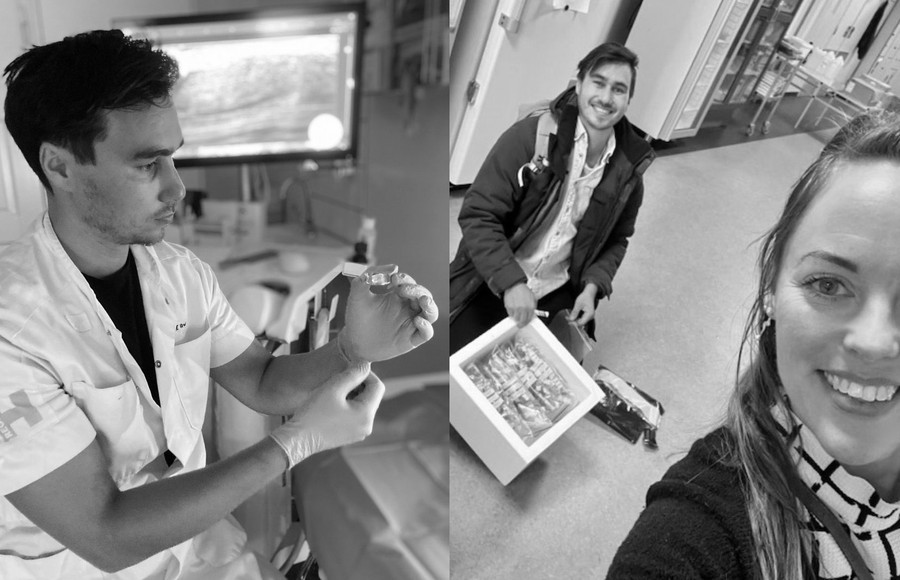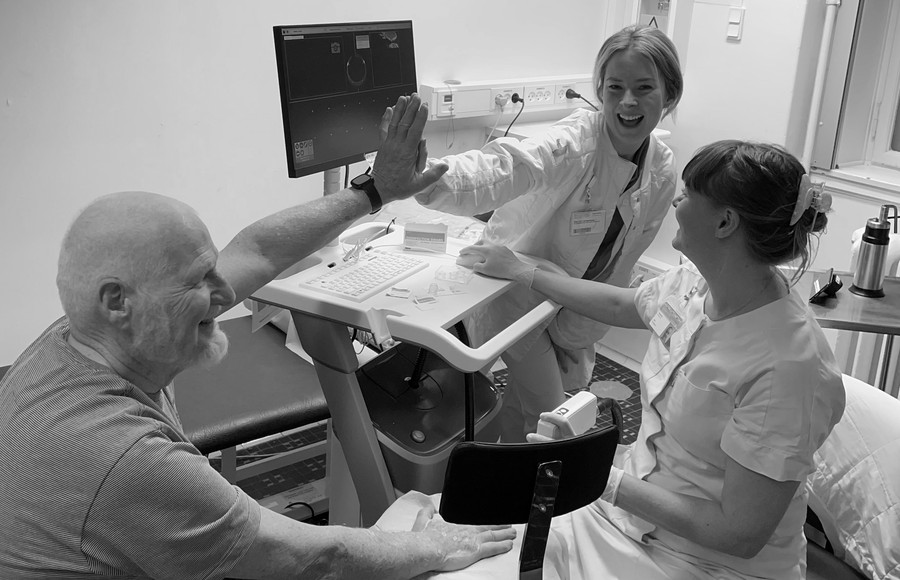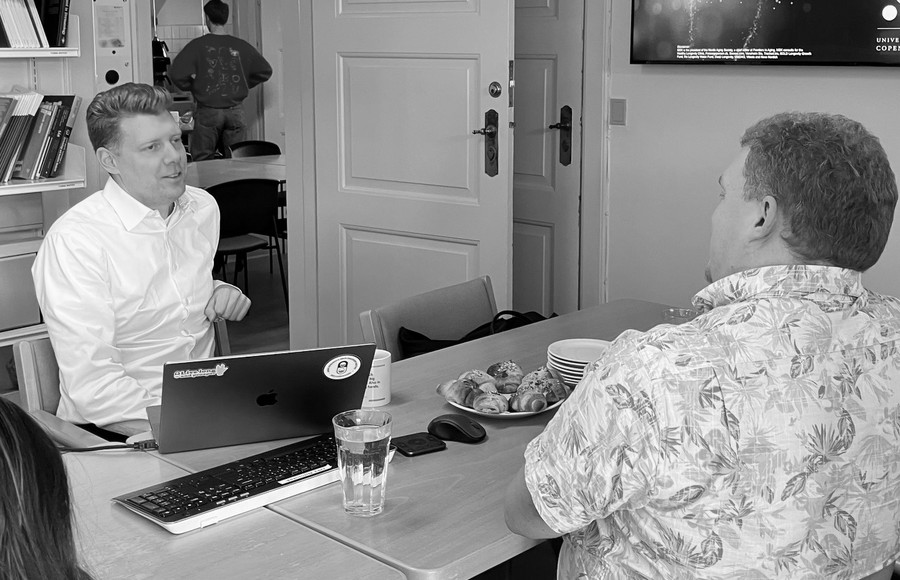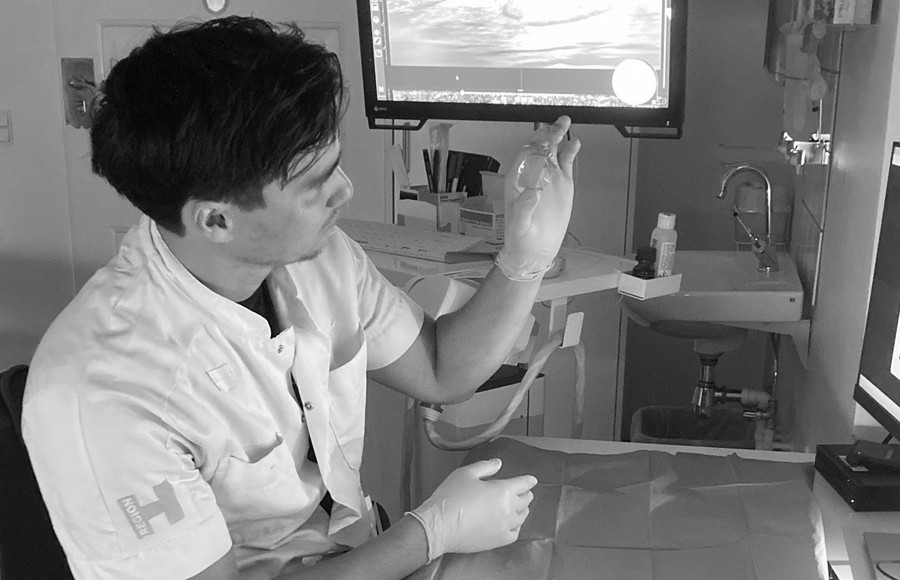Winner of poster competition: The molecular fingerprint of skin cells could become basis for future treatment of skin cancer
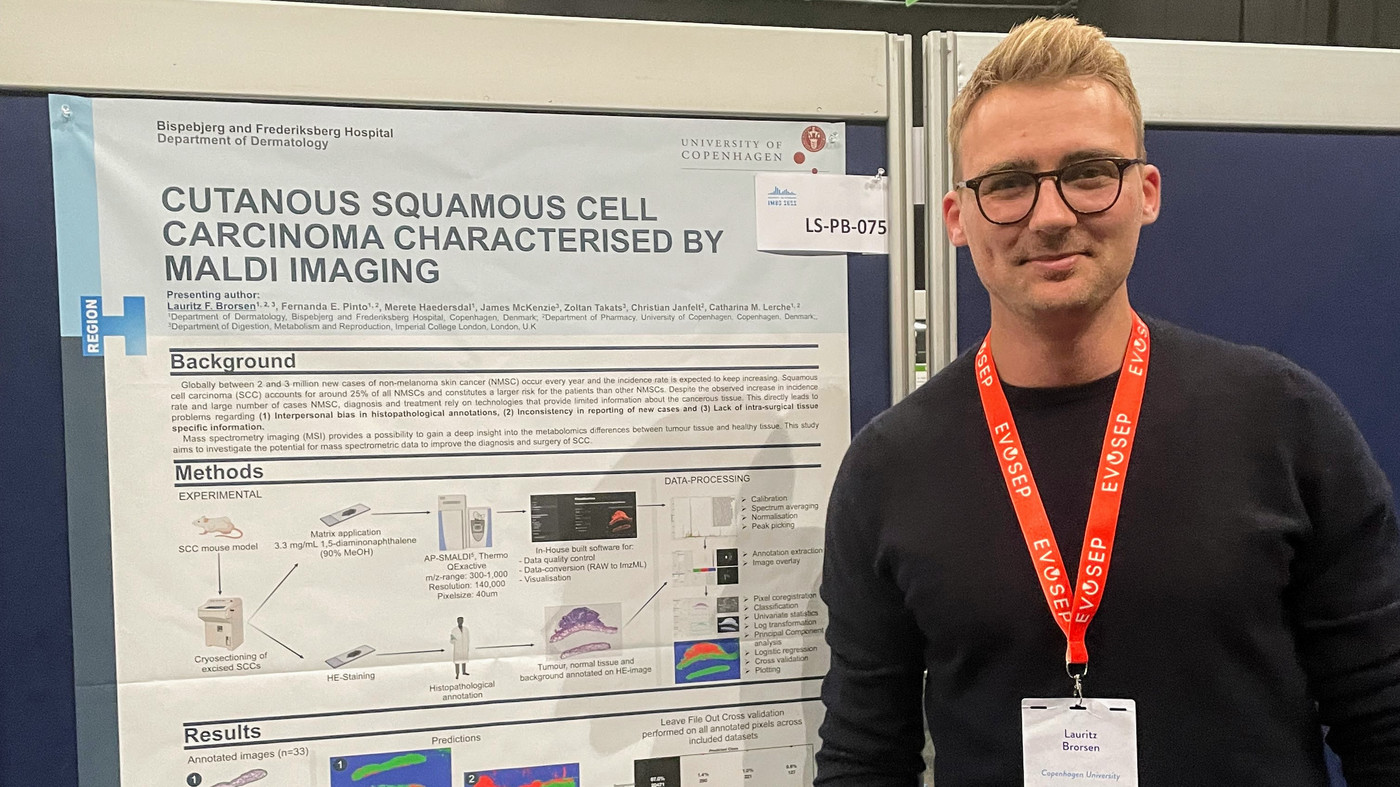
At the annual 'Drug Research Academy Summer School', which was held end of August 2022, PhD student Lauritz Falkow Brorsen presented his research on mass spectrometry for the recognition of squamous cell cancer.
Best poster presentation
The two-day conference allows PhD students from many different disciplines related to pharmaceutical science to present their research to supervisors and other PhD students. Lauritz won the prize for 'Best poster presentation'.
The poster, which can be seen in the photo above, conveys the preliminary results of the study led by Associate Professor Catharina Lerche in collaboration with Professor Merete Hædersdal and Associate Professor Christian Janfelt. The study is supported by the Lundbeck Foundation and the Danish Cancer Society.
Research
The research is multidisciplinary and spans fields within analytical chemistry, artificial intelligence, and clinical surgery. The project is a collaboration between Bispebjerg Hospital, the University of Copenhagen, and Imperial College London.
The project aims to develop new technology to diagnose and operate on skin cancer with unprecedented accuracy, speed, and safety for the patient. This is done by training an artificial intelligence to analyze smoke generated by a surgical laser. If the laser hits skin with cancer cells, the algorithm will recognize the molecular fingerprint of the cells and pass the information on to the surgeon immediately.
As a result, the technique makes it possible to diagnose and operate in one and the same visit to the clinic. In addition, data collected using the technique will contribute to a deeper understanding of skin cancer as well as improve the reporting of new cases.
